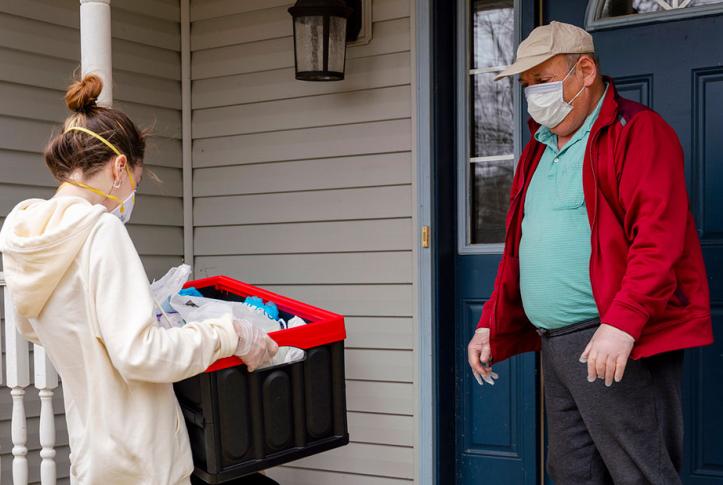The Issue
Across the United States, more than 600 Area Agencies on Aging (AAAs) provide older adults with access to nutrition, transportation, in-home supports, and social services to enable them to remain independent and in their communities. Increasingly, these agencies also are partnering with health care organizations to support older adults who have had a recent hospitalization or nursing home stay.
Writing in Health Affairs, UC Berkeley researcher Amanda Brewster and colleagues analyzed national survey data for the 2008–2013 period to gauge the impact of such partnerships on Medicare beneficiaries’ health care use and spending. Of the 534 AAAs that responded to the longitudinal survey at least once, independent nonprofits represented the most common organizational structure (38.5%). About half of the respondents served predominantly rural areas.
$136 Average annual reduction in Medicare spending per beneficiary in AAA partnerships with hospitals in the AAA’s service county
What the Study Found
- Partnerships with hospitals in an AAA’s service county were associated with an average annual reduction of $136 in Medicare spending per beneficiary.
- When AAAs established formal, contractual partnerships with mental health organizations, counties serviced by the agencies experienced a 0.5-percentage-point drop in potentially avoidable nursing home use.
- Potentially avoidable nursing home use fell by nearly 1 percentage point when AAAs were funded participants in so-called livable community initiatives — multisector coalitions to promote the health and well-being of older adults.
The Big Picture
Coordinated, community-based care for older adults with high needs could become increasingly common if the trend in partnerships between AAAs and providers like mental health organizations continues to grow. Moreover, because hospital contracts with AAAs typically focus on high-need, high-cost patients — who are estimated to account for more than 70 percent of preventable Medicare spending — “interventions targeted at this group could have an outsize impact on average Medicare spending per beneficiary even if they reached a relatively small proportion of beneficiaries,” the authors say.
The Bottom Line
Area Agencies on Aging, in partnership with local health care providers, can play an important role in enabling older adults with significant physical and mental health problems to stay out of nursing homes and remain in their communities.
